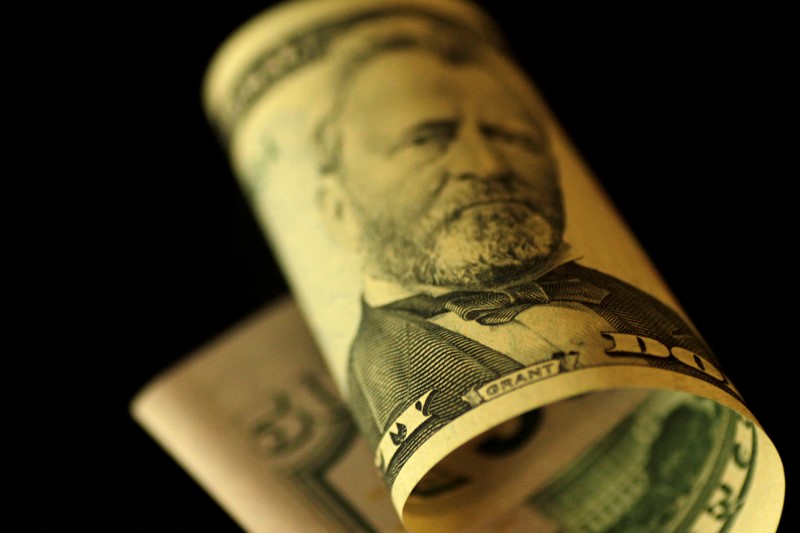By Karen Brettell
NEW YORK (Reuters) - The U.S. dollar weakened on Wednesday as investors repositioned ahead of Friday's highly anticipated jobs report, but pared losses on a strong non-manufacturing report.
Improving U.S. data along with the prospect of U.S. tax cuts and the likelihood that the Federal Reserve will raise interest rates in December have boosted the U.S. currency in recent weeks.
Traders have been cautious this week on the greenback, however, on concerns that recent hurricanes may hurt last month's hiring report.
"People were afraid of the impact of hurricanes on payrolls," said Boris Schlossberg, managing director of FX strategy at BK Asset Management.
The dollar index (DXY) was last down 0.7 percent at 93.479, after earlier falling as low as 93.259.
The dollar pared losses after the Institute for Supply Management's non-manufacturing index rose to its highest level since August 2005 in September and the prices paid index reached its highest level since February 2012.
"The data seems to be supportive all the way across the board for a Fed hike in December," said Schlossberg.
Other data showed that U.S. private employers added 135,000 jobs in September, topping economists' expectations even as Hurricane Harvey and Irma "significantly impacted smaller retailers."
Fed Chair Janet Yellen did not comment on the economy or monetary policy in prepared remarks at a community banking conference on Wednesday.
Interest rate futures traders are now pricing in an 83 percent likelihood of a December rate increase, up from 78 percent on Tuesday, according to the CME Group's FedWatch Tool.
Investors are also adjusting for the likelihood that U.S. President Donald Trump will appoint a less hawkish head of the Federal Reserve than previously expected.
Politico reported on Tuesday that Treasury Secretary Steven Mnuchin favors the appointment of Fed Governor Jerome Powell as Fed Chair over former governor Kevin Warsh, who is seen as more hawkish.
Several news reports on Wednesday also showed opposition to Warsh's candidacy.
"Only a couple of days ago everyone was going for Warsh as successor, who the market saw as standing for a much tighter U.S. policy," said Commerzbank's head of currency research in Frankfurt, Ulrich Leuchtmann.

"Now everyone is thinking that Powell is the more likely choice and thinking of Powell as someone who will do very, very gradual policy incrementations," Leuchtmann said.